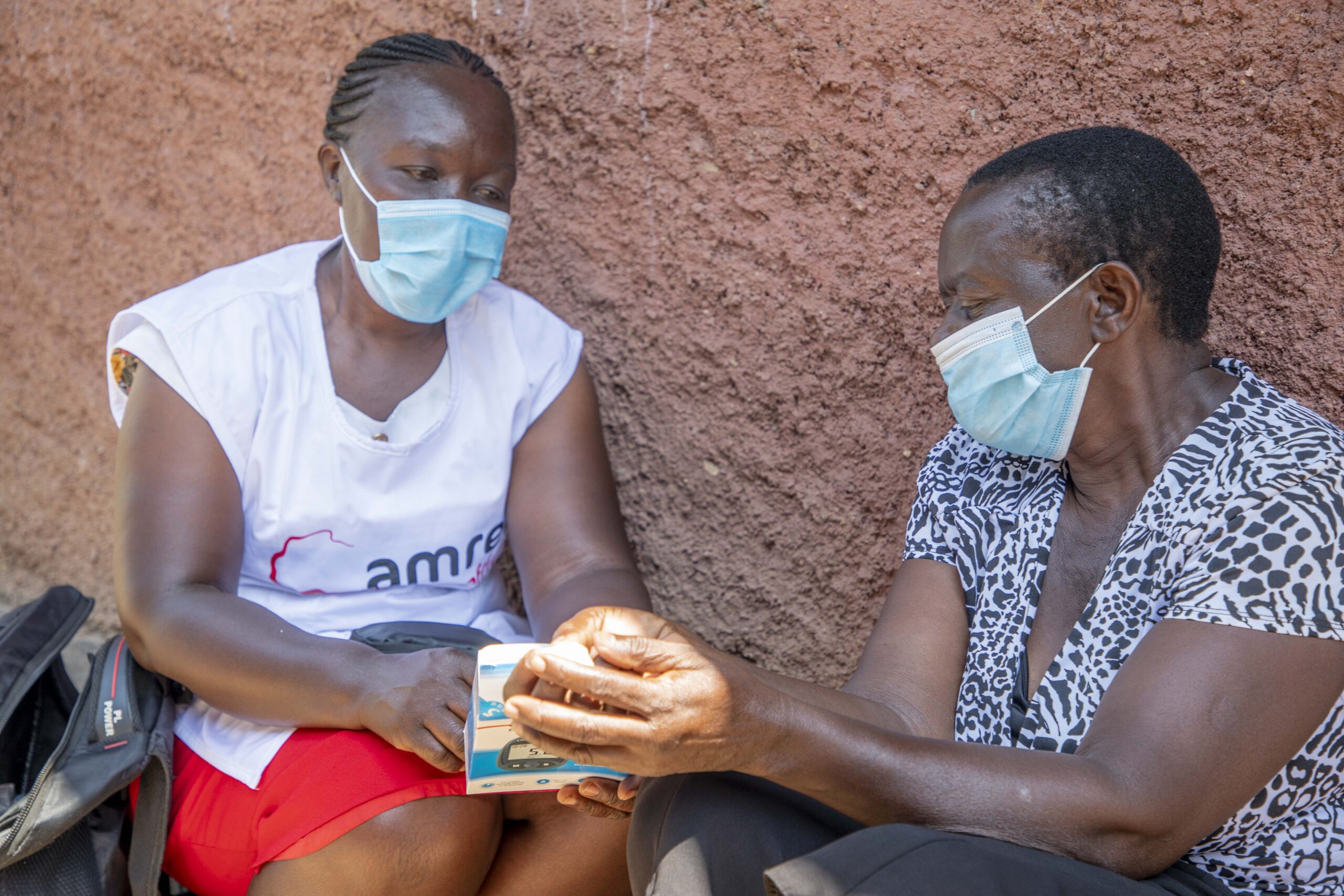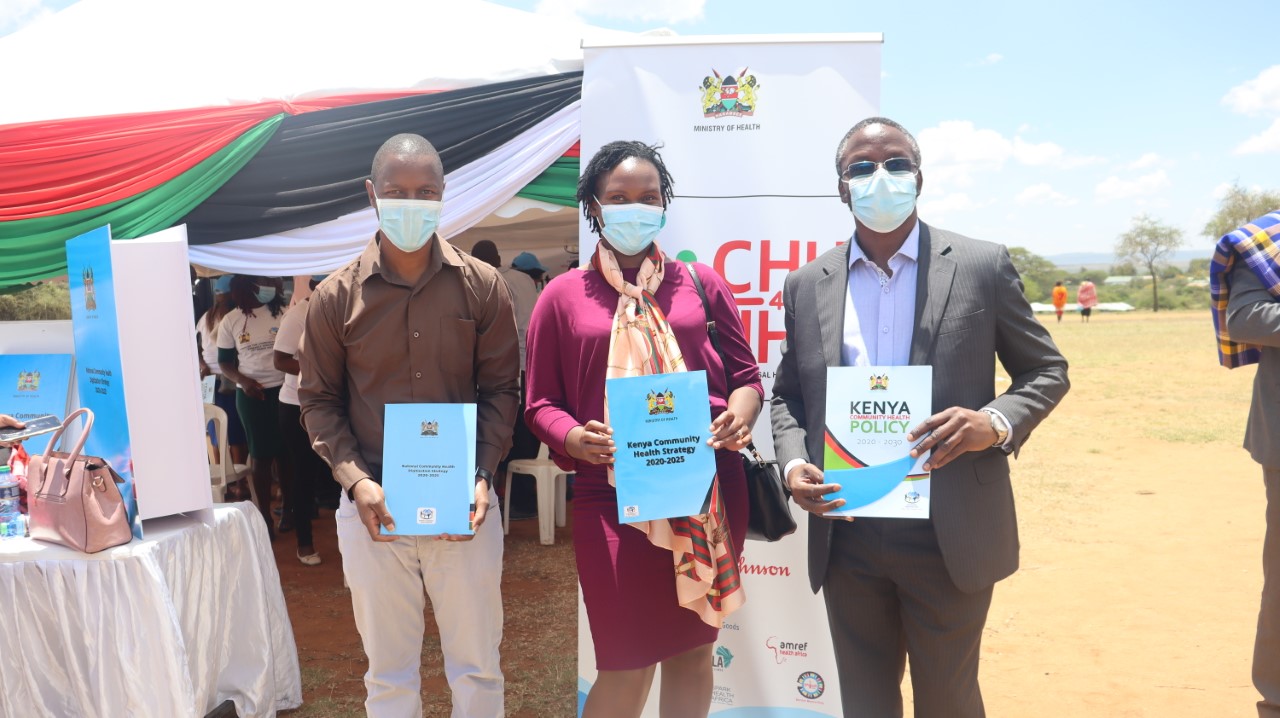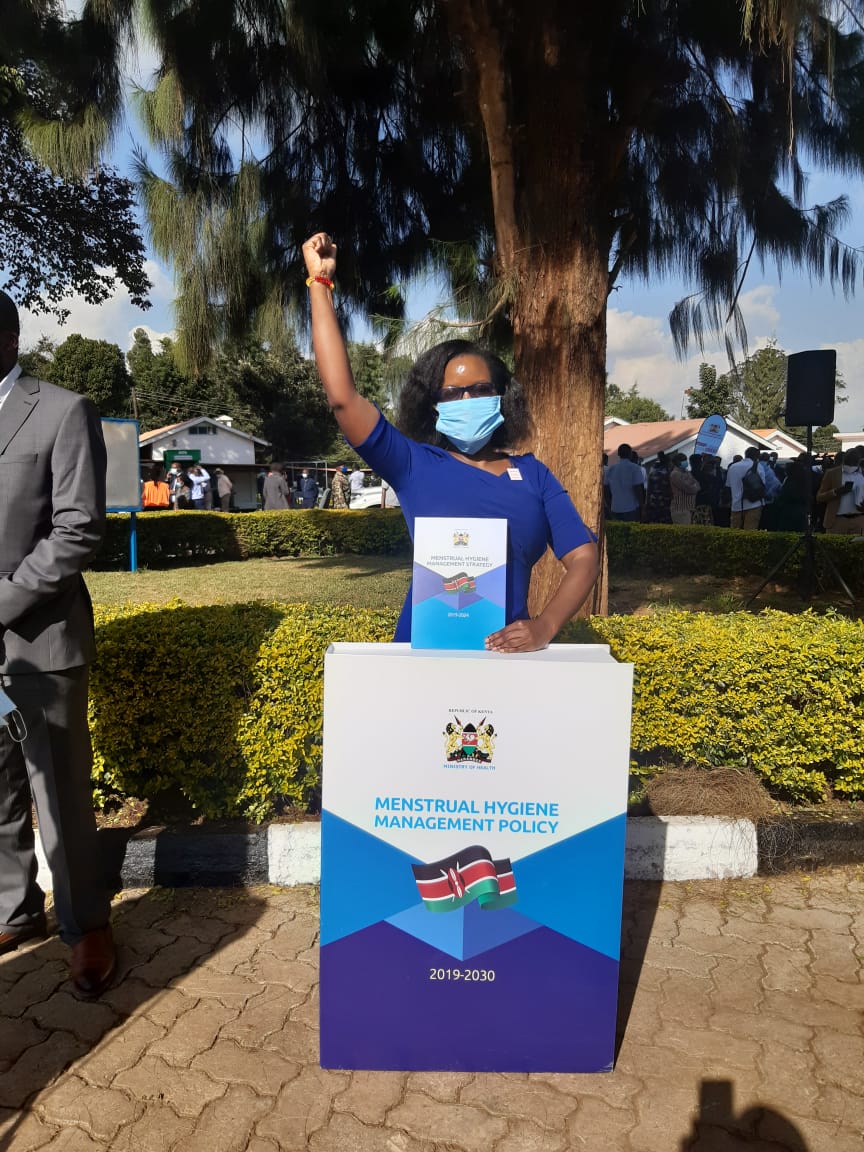One Woman’s Journey – Nurto’s Story
Tuesday, 10 September, 2019

Before finding treatment through the Amref Health Africa Safe Motherhood Project, Nurto suffered with obstetric fistula for seven years after the birth of her first born in 2012.
When she was only 21 years old, Nurto experienced a wrenching, prolonged labour at a local hospital in rural Garissa.
After delivering her child, she found herself at the lowest point of her life. She was leaking urine and faeces uncontrollably, alongside other unpleasant complications that included back pain.
Her condition affected her livelihood. Due to the pain she was experiencing, doing any type of labour was hard. Narrating her journey with fistula, she said, “I used to bake cakes on order for people at a charge of Kshs 300 per cake but due to the pain, I was unable to continue baking and that was my source of income to feed my family. I cannot sit down for long due to the pain,” she explains.
Now a mother of three, she sought care at different hospitals but was diagnosed with an infection each time not knowing that she had fistula. In 2013, she gave birth to her second child. It was then that the doctors found out that she had Obstetric Fistula.
A surgical procedure was done to correct the condition but she got pregnant soon after the surgery and the corrected fistula ruptured once she gave birth to her third child.
The social problems women and girls with obstetric fistula encounter are even more devastating; many women who experience obstructed labour die during childbirth, and those that survive are left with a terrible injury, and sometimes, a stillbirth. The families, spouses and communities consider the victims outcasts due to the dribbling of urine down their legs, wetting of clothes and beddings and the accompanying offensive smell.
In 2015, Nurto’s husband abandoned her because he could not stand the offensive smell. Life for her became almost unbearable. She was forced to go back to her parents’ home with the sole responsibility of taking care of her three children.
In 2019, she visited a hospital and was confirmed to have fistula. However, she could not afford to pay the money that was required for surgery (Kshs 50,000/US$500). As it were, she had to depend on neighbours and her family for money to cater for her transport to the hospital as well as the consultation fee.
Then she learnt of free fistula treatment available at Garissa County Referral Hospital in Garissa from a friend who had also experienced fistula. Nurto decided to seek treatment at a free fistula medical camp by Amref Health Africa in Kenya through the Safe Motherhood Project in partnership with Garissa County Referral Hospital held from 20-24 May 2019.
“One day, my friend called and told me that there was a free medical camp at Garissa County Referral Hospital. I did not even have the money for transport. She gave me Kshs 200 for my transport. The next day I went to the hospital, I was screened and given a date for my surgery which is today. I am very thankful and hopeful that I heal so that everything goes back to normal.”
Her mother had accompanied her to the hospital. Together, they awaited Nurto’s surgery, eagerly anticipating the outcome of her surgery and hopeful for restored health that would let Nurto lead a normal life once again.
The Safe Motherhood Project is an Amref Health Africa initiative targeting three counties in northern Kenya (Turkana, Garissa and Marsabit). Funded by Global One, the goal of the project is to contribute to sustained reduction in maternal morbidity, mortality and disability in the three hard to reach counties.
A total of 182 patients were screened at the free medical camp in Garissa County Referral Hospital; 41 had fistula surgery and 16 received fistula repair surgery. The surgeries and repairs have enabled the patients to regain their dignity and relief from pain. UNFPA data estimates show that the incidence of obstetric fistula in Africa is between 50,000 and 100,000 women and girls each year, with about 2,000 new obstetric fistulas occurring in Kenya each year.
Amref Health Africa believes that greater and lasting impact will only be achieved through promoting a health systems approach to fistula management. To achieve this, it is critical to scale up integrated prevention interventions through increased utilisation and access to quality emergency obstetric care, community education and sensitisation to advocate for women’s health and rights to access care as needed, and reintegration of fistula champions back into the society.
Amref Health Africa teams up with African communities to create lasting health change.




